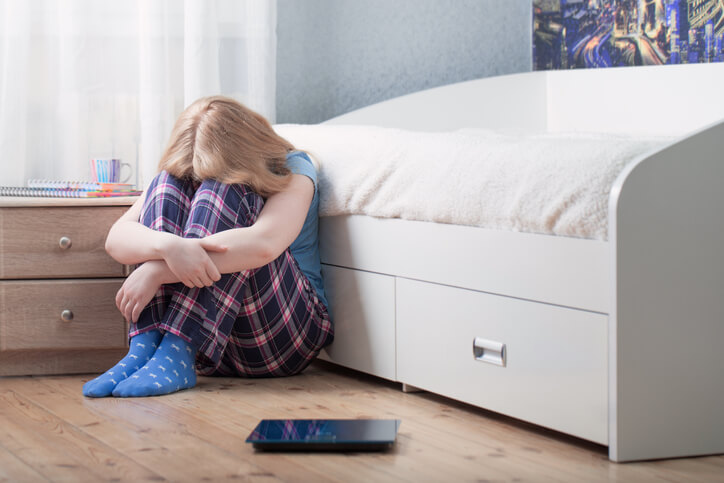Antipsychotics have some notoriously unique side effects. But one in particular seems consistent across the board: weight gain. And for some drugs, that weight gain shows up as more than just a few pounds. Significant increases are possible, especially in children and adolescents taking atypical antipsychotics like Abilify, Risperdal and Zyprexa. If you’re wondering how much Abilify weight gain to expect and what to do about it, keep reading…
What Studies Say About Abilify Weight Gain
Of course, any given drug’s side effects will vary from person to person. While one patient may experience serious Abilify weight gain, for example, others may not. But a major JAMA study published in 2009 found children and adolescents suffer the most side effects from prescription antipsychotics.
Researchers looked at 257 children and adolescents aged 4-19 over 12 weeks. All patients took atypical antipsychotics (such as Abilify and Risperdal) for the first time during this study. At the study’s conclusion, Abilify subjects gained 10 pounds, on average, in less than 12 weeks. This translates to an average Abilify weight gain of 1.5 pounds per week.
Researchers found 10%-36% of younger Abilify patients transitioned from overweight to obese BMIs in just 11 weeks. Because adolescent bodies are smaller than adults, an 8-15% total weight increase is extremely significant.
An editorial on that study examines how much serious Abilify weight gain at such a young age impacts patients. It cites “ominous long-term health implications” from blood-fat level changes as well as the weight gain itself. “These results challenge the widespread use of atypical antipsychotic medications in youth,” the editorial continues.
Since that 2009 study, some doctors and other professionals were quick to call Abilify a “weight-neutral” antipsychotic. However, one child psychiatrist contradicts this view. In a letter to Psychiatry MCC’s editor, Dr. Tanvir Singh, MD presents two adolescents with severe Abilify weight gain cases.
Dr. Singh states most clinical trials suggest that Abilify does not cause significant weight gain. However, he then asserts that “most of these trials were done on an adult population. It is well known that children and adolescents can be more prone to weight gain as a side effect of atypical antipsychotics.”
Other Things That May Make Your Abilify Weight Gain Worse
There are different reasons some patients report more Abilify weight gain than others. Relevant factors include:
- Increased appetite
- Blood sugar spikes/crashes
- Food cravings
- Fat storage
- Hormones
- Lack of motivation
- Slow metabolism
- Other side effects
What does this means for you, the patient? It means that you’ll likely notice some Abilify weight gain. Ask your doctor about adjusting your medication to help avoid gaining significant weight. Here are some things to look at that may help mitigate your Abilify weight gain:
- Dosage
- Duration
- Other medications you’re taking
- Individual factors (i.e., poor sleep, exercise habits, food allergies, etc.)
If you or a loved one experienced serious Abilify weight gain after starting this drug, talk to your doctor. A few dosage or timing changes may help mitigate future weight gain issues with Abilify or similar antipsychotics.
How Abilify Patients With Gambling Addictions May Qualify for Compensation
If you or a loved one developed any compulsive behaviors while taking Abilify, you may qualify for compensation. Behavioral Abilify side effects may include include:
- Sex addiction
- Eating disorders
- Compulsive shopping
- Gambling addiction
- Other uncontrollable urges
To see if you may qualify for financial compensation, complete your free Abilify claim evaluation online today. Just answer three quick questions to see your results in less than two minutes! Once you’ve submitted your information, a lawyer will call to discuss how to get the justice and compensation you deserve.
Related: Abilify Lawsuit Information for Compulsive Gambling Side Effects
